Archer AX1500
AX1500 Wi-Fi 6 Router
- Wi-Fi 6 Technology: Archer AX1500 comes equipped with the latest wireless technology, Wi-Fi 6, for faster speeds, greater capacity and reduced network congestion.
- Next-Gen 1.5 Gbps Speeds: Archer AX1500 dual-band router reaches even faster speeds up to 1.5 Gbps (1201 Mbps on 5 GHz band and 300 Mbps on 2.4 GHz band)*
- Connect More Devices: Wi-Fi 6 technology communicates more data to more devices using revolutionary OFDMA and MU-MIMO technology while simultaneously reducing lag.△§
- Triple-Core Processing: The 1.5 GHz tri-core processor ensures communications between your router and all connected devices are smooth and buffer-free.
- More Reliable Coverage: Achieve the strongest, most reliable WiFi coverage with Archer AX1500 as it focuses signal strength to your devices using Beamforming technology and four antennas.
- Increased Battery Life: Target Wake Time technology reduces your devices' power consumption to extend their battery life.‡
- Easy Setup: Set up your router in minutes with the powerful TP-Link Tether App.
- Backward Compatible: Archer AX1500 supports all previous 802.11 standards and all WiFi devices.
Faster Speeds. More Connected Devices.
Powerful Processing.
-
Wi-Fi 6
-
Up to 1.5 Gbps Speeds
-
Connect More Devices
-
Triple-Core CPU
-
Reduced Power Consumption
The Latest
Wi-Fi 6 Technology
Archer AX1500 brings the latest Wi-Fi 6 technology to your home without breaking the bank. Upgrading your router to AX1500 means faster speeds, greater capacity, reduced latency, and more for an overall superior WiFi network.
Next-Generation
WiFi Speeds
Up to 1.5 Gbps
Experience next-gen speeds up to 1.5 Gbps with the dual-band Archer AX1500 featuring Wi-Fi 6 for faster, more enjoyable 4K/HD streaming, online gaming and more.*
More Devices.
Less Congestion.
Smarter Home.
Archer AX1500 talks to all your streaming, gaming, mobile and smart home devices on your network using revolutionary OFDMA, which work together to organize the flow of data to multiple devices while simultaneously reducing lag.△§
More Reliable
Coverage
Achieve the strongest, most reliable WiFi coverage with Archer AX3000 as it focuses signal strength to your devices using Beamforming technology and four antennas.
Reduced Power
Consumption.
Increased Battery Life.
Target Wake Time (TWT) talks to your devices and negotiates when and how frequently they should transfer data to increase device sleep time, extending battery life.‡

Easily Set Up and
Manage Your WiFi
Set up and manage your WiFi through the TP-Link Tether app (Android, iOS). Access WiFi settings such as parental controls, guest privileges and more right from your smartphone.
| WIRELESS | |
|---|---|
| Standards | Wi-Fi 6IEEE 802.11ax/ac/n/a 5 GHzIEEE 802.11n/b/g 2.4 GHz |
| WiFi Speeds | AX15005 GHz: 1201 Mbps (802.11ax)2.4 GHz: 300 Mbps (802.11n) |
| WiFi Range | 2-3 Bedroom Houses 4× Fixed High-Performance Antennas Multiple antennas form a signal-boosting array to cover more directions and large areas Beamforming Concentrates wireless signal strength towards clients to expand WiFi range |
| WiFi Capacity | High Dual-BandAllocate devices to different bands for optimal performanceOFDMASimultaneously communicates with multiple Wi-Fi 6 clientsAirtime FairnessImproves network efficiency by limiting excessive occupation4 StreamsConnect your devices to more bandwidth |
| Working Modes | Router ModeAccess Point Mode |
| SECURITY | |
|---|---|
| Network Security | SPI FirewallAccess ControlIP & MAC BindingApplication Layer Gateway |
| Guest Network | 1× 5 GHz Guest Network1× 2.4 GHz Guest Network |
| VPN Server | OpenVPNPPTP |
| WiFi Encryption | WEPWPAWPA2WPA/WPA2-Enterprise (802.1x) |
| HARDWARE | |
|---|---|
| Processor | 1.5 GHz Triple-Core CPU |
| Ethernet Ports | 1× Gigabit WAN Port4× Gigabit LAN Ports |
| Buttons | WPS/Wi-Fi Button Power On/Off Button Reset Button |
| Power | 12 V ⎓ 1 A |
| SOFTWARE | |
|---|---|
| Protocols | IPv4IPv6 |
| Parental Controls | URL FilteringTime Controls |
| WAN Types | Dynamic IPStatic IPPPPoEPPTPL2TP |
| Quality of Service | QoS by Device |
| Cloud Service | Auto Firmware UpgradeOTA Firmware UpgradeTP-Link IDDDNS |
| NAT Forwarding | Port ForwardingPort TriggeringDMZUPnP |
| IPTV | IGMP ProxyIGMP SnoopingBridgeTag VLAN |
| DHCP | Address ReservationDHCP Client ListServer |
| DDNS | TP-LinkNO-IPDynDNS |
| Management | Tether AppWebpageCheck Web Emulator> |
| OTHER | |
|---|---|
| System Requirements | Internet Explorer 11+, Firefox 12.0+, Chrome 20.0+, Safari 4.0+, or other JavaScript-enabled browserCable or DSL Modem (if needed)Subscription with an internet service provider (for internet access) |
| Certifications | FCC, CE, RoHS |
| Environment | Operating Temperature: 0℃~40℃ (32℉ ~104℉)Storage Temperature: -40℃~70℃ (-40℉ ~158℉)Operating Humidity: 10%~90% non-condensingStorage Humidity: 5%~90% non-condensing |
| TEST DATA | |
|---|---|
| WiFi Transmission Power | CE: <20dBm(2.4 GHz)<23dBm(5.15 GHz~5.25 GHz)FCC:<30dBm(2.4 GHz & 5.15 GHz~5.825 GHz) |
| WiFi Reception Sensitivity | 5 GHz:11a 6Mbps:-97dBm, 11a 54Mbps:-79dBm11ac VHT20_MCS0:-96dBm, 11ac VHT20_MCS11:-66dBm11ac VHT40_MCS0:-94dBm, 11ac VHT40_MCS11:-63dBm11ac VHT80_MCS0:-91dBm, 11ac VHT80_MCS11:-60dBm11ax HE20_MCS0:-95dBm, 11ax HE20_MCS11:-63dBm11ax HE40_MCS0:-92dBm, 11ax HE40_MCS11:-60dBm11ax HE80_MCS0:-89dBm, 11ax HE80_MCS11:-58dBm2.4 GHz:11g 6Mbps:-91dBm, 11a 54Mbps:-74dBm11n HT20_MCS0:-90dBm, 11n HT20_MCS7:-73dBm11n HT40_MCS0:-88dBm, 11n HT40_MCS7:-70dBm |
| PHYSICAL | |
|---|---|
| Dimensions (W×D×H) | 10.2 × 5.3 ×1.5 in(260.2 × 135.0 × 38.6 mm) |
| Package Contents | Wi-Fi Router Archer AX1500Power AdapterRJ45 Ethernet CableQuick Installation Guide |
*Maximum wireless transmission rates are the physical rates derived from IEEE Standard 802.11 specifications. Range and coverage specifications are based upon test results under normal usage conditions. Actual wireless transmission rate and wireless coverage are not guaranteed, and will vary as a result of 1) environmental factors, including building materials, physical objects and obstacles, 2) network conditions, including local interference, volume and density of traffic, product location, network complexity, and network overhead and 3) client limitations, including rated performance, location, connection quality, and client condition.
△Use of MU-MIMO, DL/UL OFDMA and 1024QAM requires clients to also support those functions.
‡Saving clients' battery power requires clients to also support the 802.11ax Wi-Fi standard. Actual power reduction may vary as a result of network conditions, client limitations, and environmental factors.
§Latency improvement requires that the AP and all clients support OFDMA.
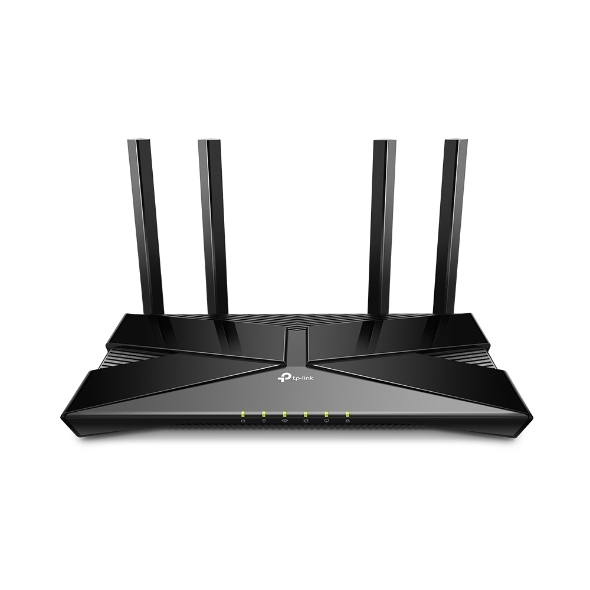
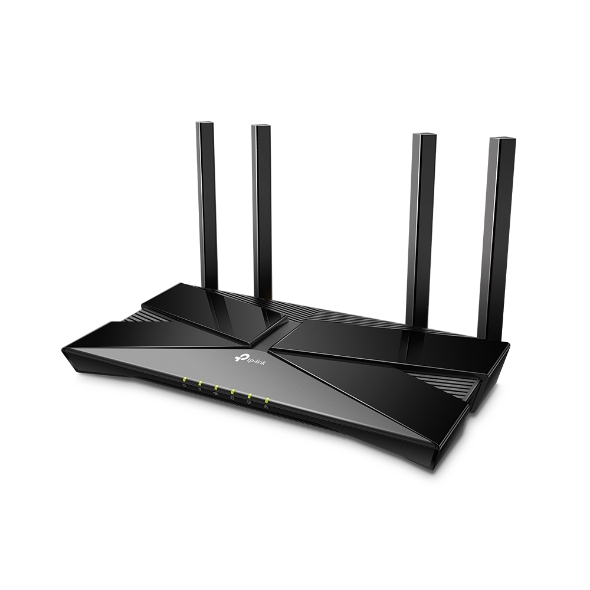
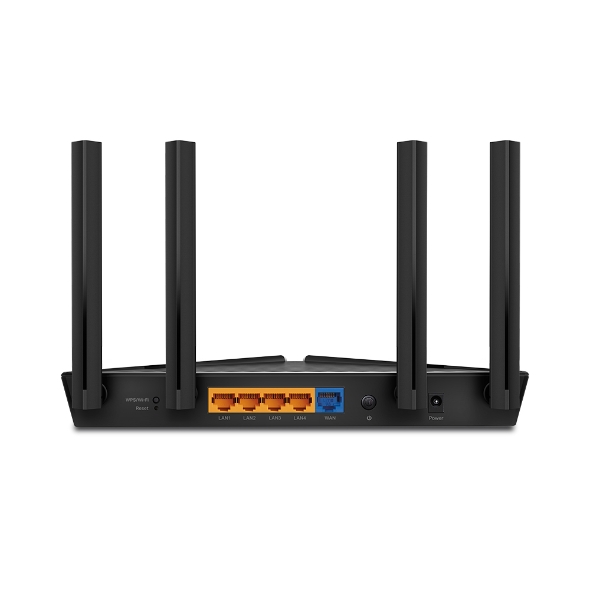
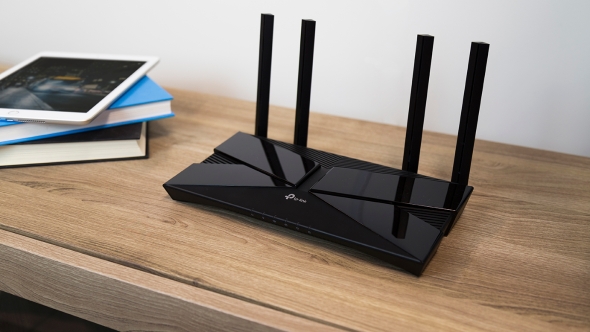
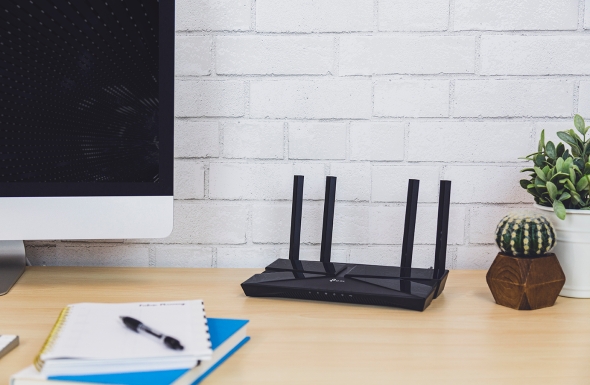
1.8-330X240X73-M-7022506745_normal_1593395512703j.jpg)
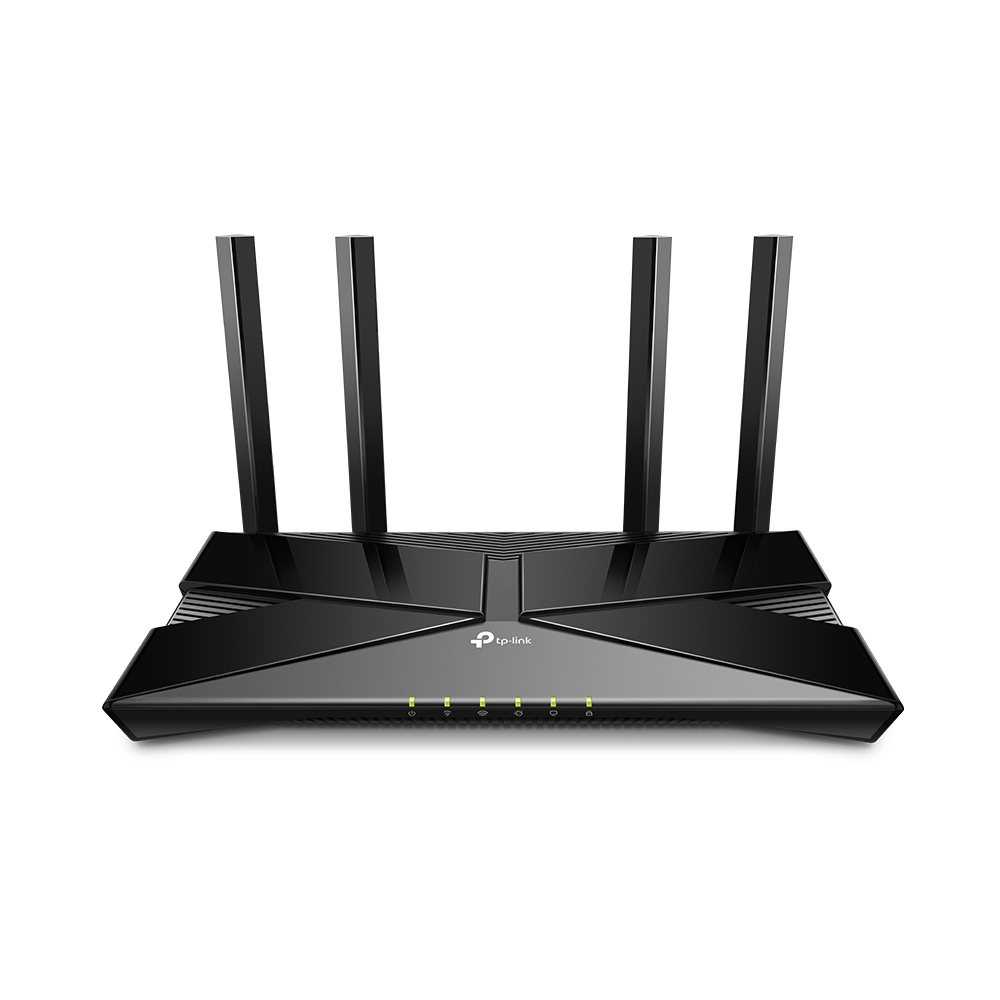




1.8-330X240X73-M-7022506745_large_1593395512703p.jpg)